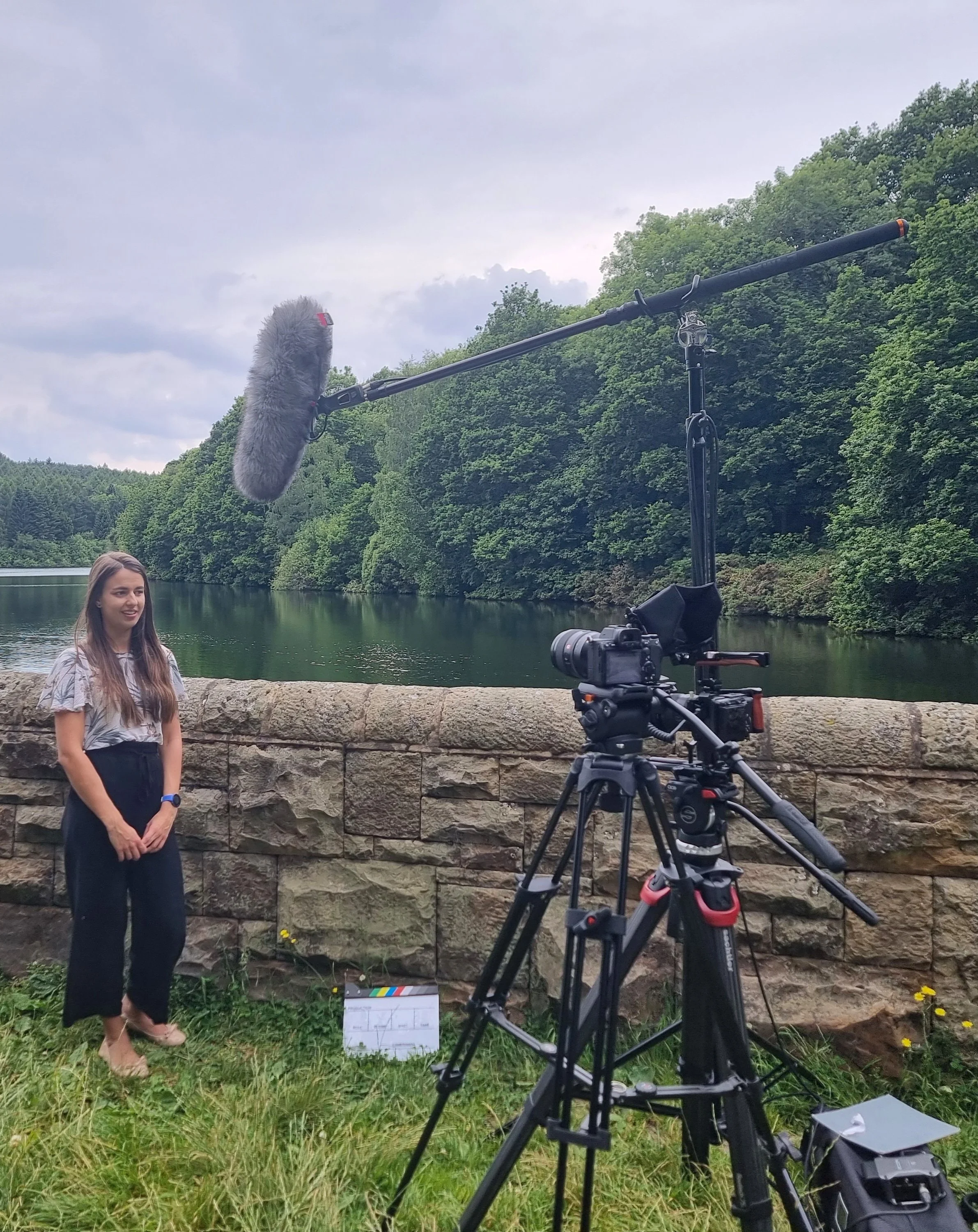Our Services
Our services are designed to make end-of-life care inclusive for neurodivergent people. From consultancy and training to speaking and advocacy, we offer practical support and resources that help people feel understood, staff feel confident and make care truly person-centred.
-
We provide tailored consultancy to help organisations improve their support for neurodivergent patients, residents, and families.
This can include:
Service and environment audits
Advance care planning reviews and guidance
Bespoke inclusion action plans
-
We deliver practical, evidence-based training on:
Understanding autism and ADHD in end-of-life contexts
Communication styles, sensory needs, and processing differences
How to adapt your approach to meet individual needs
Making advance care planning accessible to neurodivergent people
Available as one-off sessions, multi-part training programmes, or conference presentations.
-
For individuals or small teams working regularly with death, dying, and bereavement. Space to:
Reflect on complex cases
Problem-solve challenges
Improve inclusive practice
Our Approach
Our work is direct, practical, and tailored to your setting. We know that as health and social care professionals you work under pressure. Our role is to make inclusion achievable, not to add to your workload. -
I’m available for keynote talks, panel discussions, and media interviews on:
Death competency development for healthcare professionals
A neurodivergent perspective on death, dying, caregiving, and grief
Neurodivergent inclusion in palliative and end-of-life care
Example Talk Titles:
Death Wired Differently: Neurodivergent Perspectives in End-of-Life Care
Building Death Competency in Healthcare Professionals
Neurodivergence, Grief, and Communication at the End-of-Life
Consultancy for Inclusive End-of-Life Care
We work with organisations across health, social care, and funeral services to make end-of-life support more accessible, person-centred, and inclusive for neurodivergent people and their families.
Every consultancy project is tailored to your setting, ensuring recommendations are both achievable and realistic for your team.
What We Offer
Service & Environment Audits
A detailed review of your physical and digital environments to identify barriers and opportunities for improving accessibility for autistic and ADHD individuals.
Advance Care Planning Reviews and Guidance
Examination of your existing processes and resources to highlight where neurodivergent needs may be overlooked, and provide clear, actionable improvements. We can also develop bespoke resources and tools for your organisation, or provide you with access to ours.
Bespoke Inclusion Action Plans
Practical strategies designed specifically for your organisation — setting out step-by-step changes that make inclusion part of everyday practice rather than an added burden.
Who It’s For
Hospices, care homes, hospitals, funeral directors and celebrants, charities, and community organisations, and anyone else providing end-of-life care, who want to:
Better support neurodivergent patients, residents, or clients
Build staff confidence around inclusive practice
Embed accessibility and person-centred approaches into every stage of end-of-life care
Our Approach
We know that professionals are already working under pressure. Our consultancy is, direct, practical, and designed to integrate into your existing systems, making inclusion achievable, not overwhelming.
Training and Workshops
Our training is designed to give professionals the knowledge and confidence to provide accessible, person-centred care for neurodivergent individuals at the end-of-life. All sessions are practical, evidence-based, and shaped by our team members lived experience of autism, ADHD, and other neurological differences.
What You’ll Learn
Autism & ADHD in End-of-Life Contexts
Gain a deeper understanding of how neurodivergent experiences shape approaches to death, dying, and grief support
Communication, Sensory & Processing Differences
Learn how to recognise and respond to diverse communication styles, sensory needs, and executive function challenges
Adapting Your Approach
Practical strategies for making end-of-life care more respectful, inclusive, and aligned with each individual’s life, needs, and vision for their care
Formats Available
One-off sessions tailored to your team or setting
Multi-part training programmes for deeper learning
Conference presentations to increase awareness, promote reflective practice, and inspire change and inspire change
Who It’s For
Clinicians, care staff, funeral professionals, doulas, hospice teams, counsellors, chaplains, and anyone working with people at the end-of-life.
Our Approach
We understand that training needs to be useful and realistic, not just theoretical. Sessions are designed to be engaging, flexible, and immediately applicable to your work.
Mentoring and Reflective Space
Working in death, dying, and bereavement can be challenging, especially when the support being provided is mismatched with the needs of the people receiving it. We provide a dedicated space for professionals and small teams to step back, reflect, and strengthen inclusive practice.
What This Space Offers
Case Reflection
Talk through complex or emotionally challenging situations in a safe, structured environment.
Problem-Solving Support
Explore practical strategies for navigating barriers and adapting to individual needs.
Improving Inclusive Practice
Build confidence in supporting neurodivergent people by identifying what works and embedding it into your everyday approach.
Who It’s For
End of life doulas, clinicians, hospice staff, care workers, funeral professionals, chaplains, and anyone directly supporting people around death and bereavement.
Our Approach
Sessions are practical, non-judgemental (safe spaces to make mistakes), and shaped around your real-world challenges. We know health and social care professionals are under pressure, our role is to make inclusion achievable and sustainable, not to add to your workload.
Speaking & Media
Dr Emma Clare is an engaging speaker and commentator, bringing professional expertise and lived experience to some of the most important conversations about death, dying, and neurodivergence. She is available for keynote talks, panel discussions, podcasts, and media interviews.
Her approach combines clear, practical insights with compassion and authenticity, helping audiences understand complex issues around death, grief, and inclusion in ways that feel accessible and meaningful.
Areas of Focus
Death Competency Development
Supporting healthcare professionals to face death with confidence, reduce anxiety, and improve the quality of care at the end-of-life
A Neurodivergent Perspective on Death and Grief
Exploring how autism and ADHD shape experiences of death, dying, caregiving, and bereavement, and why these perspectives must be part of every conversation
Inclusion in Palliative and End-of-Life Care
Highlighting the barriers neurodivergent people face and offering practical, achievable strategies for making services more inclusive
Example Talk Titles
Death Wired Differently: Neurodivergent Perspectives in End-of-Life Care
An introduction to how neurodivergent experiences shape death, dying, and grief — and what this means for carers, professionals, and services.
Building Death Competency in Healthcare Professionals
Why exploring our own relationships with death, dying, and loss matters.
Neurodivergence, Grief, and Communication at the End-of-Life
Understanding sensory needs, communication differences, and executive function challenges, and how to offer support that respects them.
Next steps
Introductory meetings are always free. Email dremmaclare@outlook.com to discuss your needs and find out how we can help or fill out our contact form.




